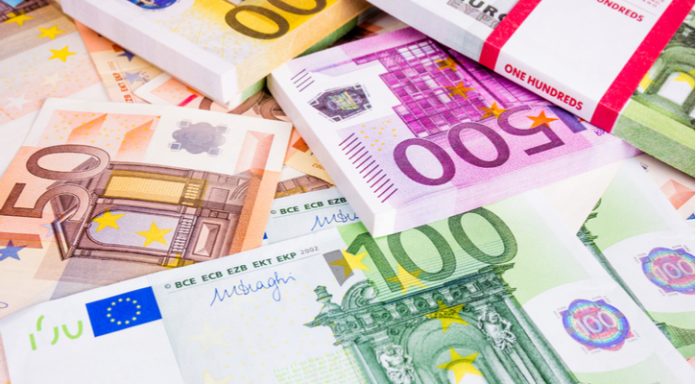Weaker than forecast UK data, in addition to jitters over Brexit, set the pound off to a negative start to the new trading week. The pound fell from €1.1347 to a low of €1.1273 versus the euro. This is the lowest level that the pound has traded at against the common currency since mid January.
| What do these figures mean? |
|---|
|
When measuring the value of a pair of currencies, one set equals 1 unit and the other shows the current equivalent. As the market moves, the amount will vary from minute to minute. For example, it could be written: 1 GBP = 1.13990 EUR Here, £1 is equivalent to approximately €1.14. This specifically measures the pound’s worth against the euro. If the euro amount increases in this pairing, it’s positive for the pound. Or, if you were looking at it the other way around: 1 EUR = 0.87271 GBP In this example, €1 is equivalent to approximately £0.87. This measures the euro’s worth versus the British pound. If the sterling number gets larger, it’s good news for the euro. |
UK service sector activity in January failed to live up to analysts expectations on Monday. Markit’s service PMI for the UK for January showed activity slowed from 54.2 to 53, rather than moving higher to 54.2 as analysts had anticipated.
The underwhelming numbers add to disappointing construction and manufacturing activity data released last week. The stats so far for January are suggesting that the economy was not as strong as analysts had been predicting, which is making investors nervous.
| Why does poor economic data drag on a country’s currency? |
|---|
| Slowing economic indicators point to a slowing economy. Weak economies have weaker currencies because institutions look to reduce investments in countries where growth prospects are low and then transfer money to countries with higher growth prospects. These institutions sell out of their investment and the local currency, thus increasing supply of the currency and pushing down the money’s worth. So, when a country or region has poor economic news, the value of the currency tends to fall. |
The pound had surged last week, following comments from the Bank of England (BoE) Governor Mark Carney that the central bank will look to address the surging inflation in the UK. These remarks led investors to believe that the BoE will adopt a more hawkish approach to monetary policy. However, the recent softer data is causing market participants to reconsider whether the UK economy is strong enough to sustain higher interest rates.
| Why do raised interest rates boost a currency’s value? |
|---|
| Interest rates are key to understanding exchange rate movements. Those who have large sums of money to invest want the highest return on their investments. Higher interest rate environments tend to offer higher yields. So, if the interest rate or at least the interest rate expectation of a country is relatively higher compared to another, then it attracts more foreign capital investment. Large corporations and investors need local currency to invest. More local currency used then boosts the demand of that currency, pushing the value higher. |
With no high impacting UK data due today, investors will continue to look towards Thursday when the central bank will give its interest rate decision, in addition to the quarterly inflation report.
Eurozone Economy Continues to Perform Well
Demand for the euro remained steady in the previous session as investors mulled over data for the bloc. Figures continue to indicate a solid start to the year for the eurozone economy. The composite pmi for the eurozone rose higher in January to 58.8, up from 58.1 in December, where a figure above 50 indicates expansion in the sector. This data release is often considered a good indicator of overall growth in the bloc suggests that the strong momentum in the eurozone economy will continue for at least another few months. This pleased euro investors, sending the common currency higher.
High impact eurozone data is in short supply today. Investors could look towards German retail sales data for further evidence on the health of the biggest economy in the eurozone.
|
This article was initially published on TransferWise.com from the same author. The content at Currency Live is the sole opinion of the authors and in no way reflects the views of TransferWise Inc. |





